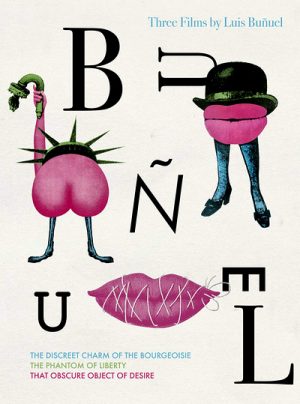Throughout his life, Luis Buñuel disdained reductionist interpretations of the "meaning" of his work, asserting more often than not that there was no meaning, that he included in his films only what amused him. Yet it seems difficult not to see much of what he did as rooted in a lifelong reaction to his early experiences as a child in Aragon, a region of Spain which he stated had remained Medieval until World War One, and to his education by Jesuits. A deeply embedded social order and the formalized rituals and meanings of the Catholic Church remained major elements of his work throughout five decades of filmmaking, always expressed through his resistance to being contained by those social and religious restrictions.
Driven from Spain by Fascists and from New York by commie hunters, he escaped to university in Madrid, befriending the painter Salvador Dali and the poet Federico Garcia Lorca, that ingrained resistance came to include the Modernism which itself was a reaction rigid social and religious rules. With his friends, Buñuel embraced Surrealism, itself a revolt against the constraints of rationalism. Already drawn towards cinema, a viewing of Fritz Lang's Der müde Tod (1921) convinced him that movies were the way to express himself.
Read more / Download movie Originally published at MovieWorld.ws

Комментариев нет:
Отправить комментарий